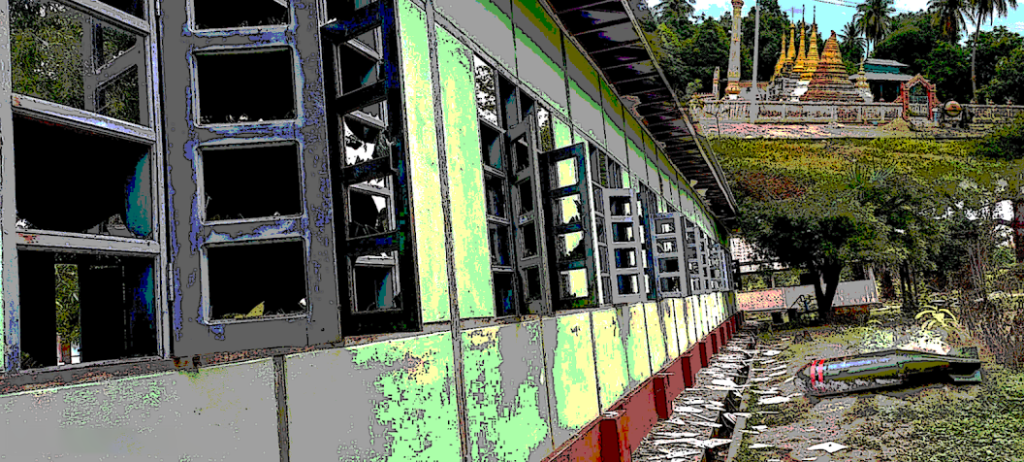Myanmar Spring Chronicle – July 10 Scenes
MoeMaKa, July 11, 2023
A village in Ye-U Township, Sagaing Division, was bombarded by an aircraft and victims of war
Day by day, the aerial bombardment of villages and towns in Sagaing Division in the north of Myanmar, Karenni State in the southeast, southern part of Magway Division, Chin State, and some regions in Karen State in the south, and Tanintharyi Divisions has become a daily occurrence.
The military council used jet fighters and helicopters to attack on a daily basis. There was no incident even during the previous military regime. When conducting operations on bases of ethnic armed groups in Karen State and Kachin State, during day-to-day or week-long battles, air is often used to drop food and ammunition by helicopter or plane, and also to transport patients. This kind of occasion was not a daily occurrence.
Now, in the battles in various regions after the military coup, the military council is no longer in a position to send ground troops for reinforcement, and even when they go from the ground, they are intercepted and attacked by landmines. So, whether it was a police station being surrounded, a column being attacked, an outpost of the military council being attacked, or even a minor battle, it can be seen that the nature of the operation has changed to conducting an operation with air support. Although air strikes are not as efficient and effective as ground troops, they are effective enough to deter their enemy, the PDF, and can be seen as an attempt to force them to retreat.
There, the question of how the NUG Government and organizations, which are at the fronts of the revolutionary forces, are taking action to protect unarmed people from air raids, arises. According to statements from the NUG ministries, many bomb shelters are dug in the southern war zones. The Ministry of Communication, Information and Technology of NUG, also known as MoCIT, often talks and explains in meetings with the public that they are working sufficiently on the safe arrival of communication devices. I have also heard requests from NUG ministers who are traveling abroad, and Myanmar communities to provide technology and tools for early warning of air threats from the United States and alliance countries within the framework.
The civil society organizations that are working on relief work for war refugees point out that the need for shelter, food, and medicine is urgent for the refugees who are fleeing from the daily ground and air warfare every day. Equally important is easy and constant access to drinking water. Due to the instability of the changing climate, the hardships of the people affected by the war are immeasurable. Therefore, it is said that the local civil society organizations on the ground are doing their best to connect with each other, and the partnership with the PDF forces in the area is also important.
For example, in order to receive aid to the people affected by the war or cyclone affected victims in Mocha Cyclone, the local armed resistance forces are providing assistance to civil organizations in providing and delivering aid in the areas blocked by the military council. In cases of fundraising to obtain funds for the damaged roads, bridges, dams, and houses for the residents, the revolutionary forces reach out to donors within their reach to get help. A local social organization said that the military council has blocked not only international aid but also domestic humanitarian aid.
I would like to point out that while the military council and its fellows are using four-cuts and scorched-earth strategies against the local people, it is important for the revolutionary organizations, local civil society organizations, and the local community to establish positive relations and understanding of each other, and continue to march together.
I also would like to urge the public and the revolutionary forces to be aware of the increasing lobbying to cause blame, division, disbelief, doubt, and obstacles among each other by the military council and their networks.

